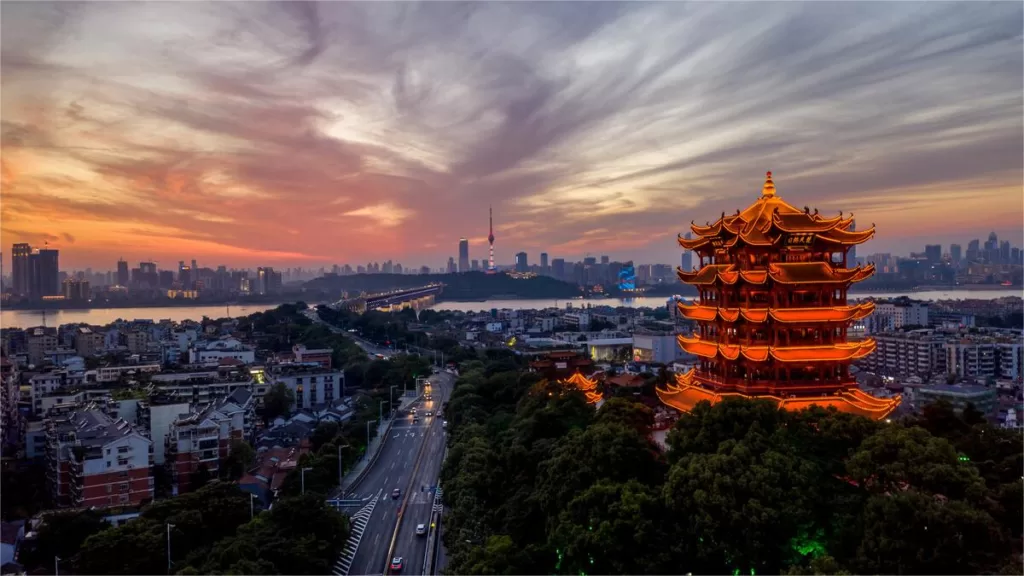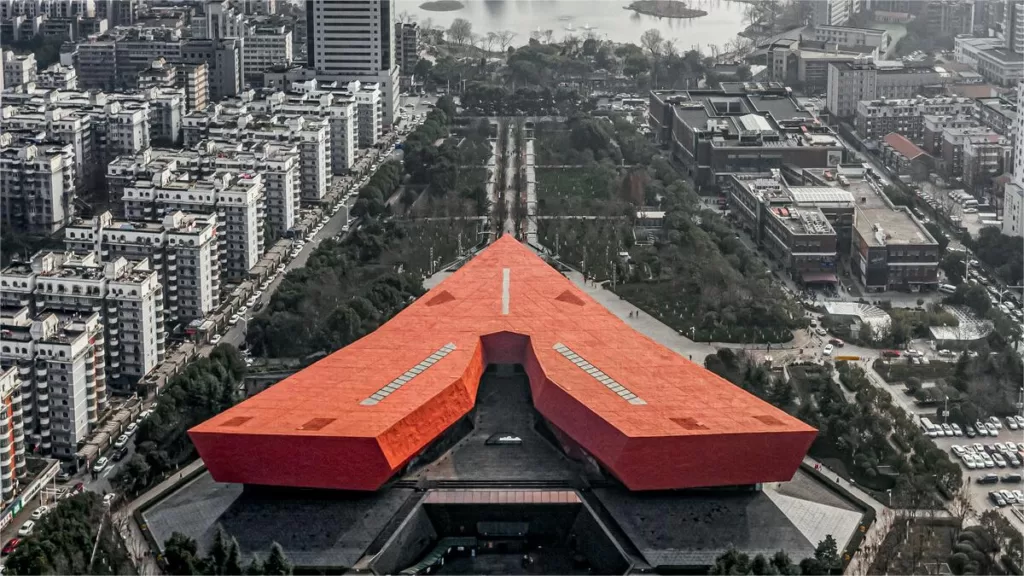The Wuhan Yangtze River Bridge (武汉长江大桥) is a historic and iconic structure located in Wuhan, Hubei Province, China. It serves as a vital transportation link, connecting the districts of Han Yang and Wu Chang over the Yangtze River, and it holds the distinction of being the first road-rail combined bridge built in the People’s Republic of China. This magnificent bridge, with a total length of 1,670.4 meters, is a symbol of the city and is often referred to as the “First Bridge of the Yangtze,” highlighting its significance.
Table of Contents
- Location
- Statistics
- History
- Design
- Decorations
- Vlog about the Bridge
- Attractions near Wuhan Yangtze River Bridge
Location
The Wuhan Yangtze River Bridge is situated approximately 2 kilometers south of the upstream Yangluo Bridge and 7 kilometers north of the downstream Wuhan Yangtze River Tunnel. It stretches from the Chuqin Interchange in Han Yang District on the west bank, crossing the Qingchuan Avenue and the Yangtze River, and extends to the Zhongshan Road in Wu Chang District on the east bank.
Statistics

The bridge comprises two main sections: the main bridge and the approach bridges. The main bridge is 1,155.5 meters long, featuring three continuous spans with a calculated span of 128 meters each. The left bank (Han Yang side) approach bridge is 303.45 meters long, with 17 spans, each having a span of 17.2 meters. The right bank (Wu Chang side) approach bridge is 211.45 meters long, with spans of two types, 17.2 meters and 16.0 meters. The bridge has two layers, with the lower layer accommodating the railway at a width of 14.5 meters, and the upper layer serving as the road, with a width of 22.5 meters.
History

The construction of the Wuhan Yangtze River Bridge began as a key project in China’s “First Five-Year Plan” on September 1, 1955. In May 1956, construction commenced with the foundation work on the eight river piers. By October of the same year, the bridge had completed all the foundation work for sinking columns and lowering the bedrock drilling from inside the columns. On March 16, 1957, the bridge’s pier construction was completed, followed by the successful joining of steel beams on May 4, 1957, and the celebratory ceremony that marked this significant milestone. On July 1, 1957, the final steel beam was installed, completing the bridge’s structure. The project was completed on September 25, 1957, and on October 15, 1957, the Wuhan Yangtze River Bridge was officially opened for traffic.
Design

The design of the Wuhan Yangtze River Bridge is a captivating blend of traditional and modern elements. The main bridge features a steel truss design, while the approach bridges have an arch-shaped structure. This contrast in both form and materials serves as a striking aesthetic element. The use of arch-shaped structures is reminiscent of ancient Chinese bridges, creating a sense of familiarity and cultural continuity.
Decorations

The bridge’s surface is adorned with traditional Chinese elements, such as multi-eave, four-slope, and upturned roof designs. The intricate details are inspired by traditional Chinese architecture. The bridge’s decorative railings on both sides depict lifelike images of flowers, birds, insects, fish, animals, and plants. These motifs are rendered using the intricate paper-cutting technique, a distinctive feature of Chinese culture, creating a beautiful and harmonious display of cast iron artwork.
At each end of the main bridge, there are two elegant and luxurious pavilions, each with a courtyard-style design. The sides of the pavilions are adorned with intricate paper-cut patterns, each carrying profound symbolism. These patterns are separated by diamond-shaped auspicious cloud motifs, inlaid within the round columns, with each column featuring a small lantern decoration. Collectively, these elements create a beautiful and harmonious scroll of Chinese decorative arts, evoking a sense of beauty and imagination.











